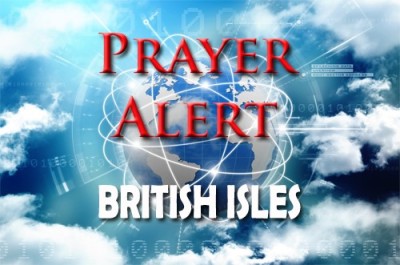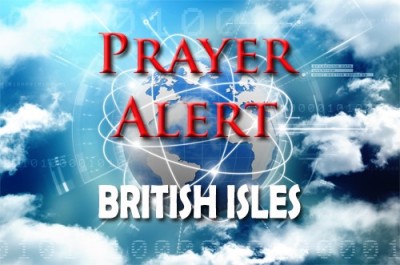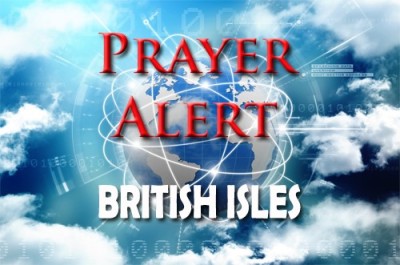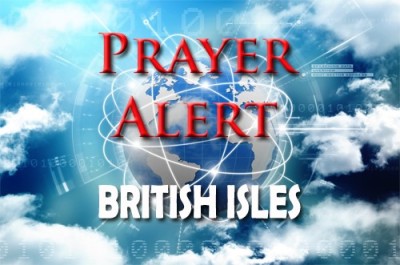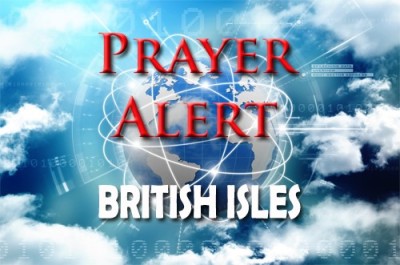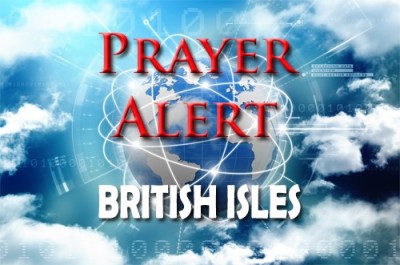After Omar, from Morocco, risked watching a video entitled 'The Koran is NOT the Word of God', he found himself questioning the authenticity of Islam. After weeks of research, he became convinced the Bible was the true Word of God and embraced Christianity. He shared the videos with his coworker Ali, and both men eventually accepted Jesus into their hearts. Though his newfound faith brought joy, it also led to hardship: his brother-in-law, an extremist, separated him from his wife, Fatima, labelling him an infidel. After a year, Fatima, disobeying her brother, returned to Omar. However, she remained unconvinced about Christianity. When she needed surgery, it was the local church that cared for her, not her friends. Over time, seeing the love of Christ in action led her to accept Jesus. Christianity in Morocco, despite societal pressures, continues to grow as more people seek truth in Christ amidst disillusionment with Islam and its institutions.
Basketball star quits NBA to follow Jesus
04 Oct 2024After two years in the NBA, former Atlanta Hawks forward AJ Griffin Jr announced his retirement to follow Jesus full-time. Griffin, 21, shared his decision in a heartfelt YouTube video after being released by his current club following the NBA Summer League, where he averaged 11.6 points per game. Griffin expressed excitement for this new season, saying, 'I’m not here to please man but only my Father in Heaven’. Quoting Hebrews 11:6, he hopes his decision inspires others to trust God fully. Griffin’s family, including his father (who also played in the NBA), has supported his faith journey. His walk with Christ deepened after the tragic passing of his two-year-old nephew Jayce a year ago. During a worship service, Griffin prayed with his family as they mourned. Now, feeling called to leave basketball, he looks forward to sharing the Gospel and pursuing God’s plan for his life.
Sir Keir Starmer made his first visit to Brussels this week, aiming to rebuild UK-EU relations post-Brexit. His visit focused on strengthening cooperation in defence, security, energy, climate change, and tackling irregular migration. While Starmer’s message of 'sensible leadership' was welcomed, the EU remains cautious, particularly regarding Labour’s call to reduce trade barriers. The EU reminded Starmer that these barriers stem from the UK’s decision to leave the single market and customs union, which he reaffirmed will not be renegotiated. Discussions on migration found some agreement, particularly regarding stopping people-smuggling gangs. However, European leaders remain divided on migration policy, with some calling for the UK to open more legal pathways for asylum-seekers. Other negotiations include easing trade restrictions on UK exports and a proposed youth mobility scheme. The EU wants the UK to comply with existing agreements before opening new negotiations, signalling that while cooperation may improve, trade-offs will be required on both sides.
Jamie Stevenson, one of the UK's most wanted men, was sentenced to 20 years in prison for masterminding a plot to smuggle nearly a tonne of cocaine from Ecuador to Scotland, hidden in a banana shipment. Known as 'Iceman,' Stevenson pleaded guilty to directing the drug operation, which was intercepted by Border Force at Dover in 2020. The cocaine, valued between £76 million and £100 million, was addressed to a Glasgow fruit merchant. Stevenson was also involved in producing and supplying the drug etizolam. His arrest was part of Operation Pepperoni, which targeted criminal activities on the encrypted communication platform EncroChat. Stevenson fled the UK but was arrested in the Netherlands in 2022 and extradited. Authorities praised the investigation that brought him to justice, emphasising the harmful impact of his criminal activities on communities. His conviction highlights the ongoing battle against organised crime in the UK: others involved in the crime were also sentenced.
The Guardian reports that the Treasury has asked ministers to prepare for cuts of up to 10% in infrastructure spending, targeting projects such as hospital upgrades, road construction, and defence initiatives. Despite Chancellor Rachel Reeves' recent commitment to increased investment to stimulate growth, the government still faces a £22 billion financial shortfall. Economists warn that cutting capital investments could harm the economy and exacerbate the country's deteriorating public infrastructure. Reeves, set to deliver her first budget on 30 October, is expected to outline tax increases to fund public services, while also addressing departmental spending limits established before inflation and rising asylum costs worsened the deficit. However, some ministers argue that short-term cuts will hinder long-term economic progress.
Teenager seriously hurt in acid attack at school
04 Oct 2024A 14-year-old girl has sustained serious, potentially life-changing injuries after an acidic substance was thrown at her and another teenager outside Westminster Academy in Westbourne Park, London. The incident, which took place after school hours, also injured a 16-year-old boy and a staff member who attempted to help. The suspect, described as a tall black male riding an e-scooter, fled the scene after the attack. The injured girl remains hospitalised, while the teenage boy's injuries are not life-threatening. The school was closed following the incident, with lessons moved online, and counselling support is being provided to students. The local council has also offered psychological support to the school community. Westminster City Council leader Adam Hug called the attack 'truly shocking': he said that the council would work with police to offer reassurance and assistance during this traumatic time.
People told to read meters as energy bills rise
04 Oct 2024Energy bills are to rise in England, Wales, and Scotland; households using typical amounts of gas and electricity will now pay about £149 more, bringing the average bill to £1,717 a year. Experts are urging billpayers to submit accurate meter readings to avoid being charged for estimated energy use at the new, higher rate. This price increase comes as winter approaches, but without extra cost-of-living payments or universal winter fuel payments for pensioners, causing concern for many. The price cap, set by energy regulator Ofgem, has been adjusted, raising gas and electricity unit prices and standing charges. Energy debts have also risen, with households collectively owing £3.7 billion to suppliers. Support for vulnerable customers is available through initiatives by energy companies, and pensioners on low incomes may be eligible for pension credit. Forecasters are predicting a slight drop in prices in January, providing some relief, but many fear these increases will exacerbate financial difficulties for households already struggling with high costs.
Christians gathered in London to rally for free speech as the Court of Appeal heard the case of Kristie Higgs, a Christian school worker who expressed concerns in 2019 about LGBT+ education at her son's CofE primary school. Higgs was dismissed from the school for ‘gross misconduct’ after sharing Facebook posts criticising the 'No Outsiders in Our School' programme, which introduced topics such as gender identity and same-sex relationships. Following an anonymous complaint, Higgs was subjected to a disciplinary hearing and subsequently dismissed for allegedly bringing the school into disrepute. Supported by the Christian Legal Centre, she argued her dismissal violated her rights to religious freedom and free speech. Though a tribunal initially ruled against her, a successful appeal led to a rehearing. Now, Higgs seeks a final ruling from the Court of Appeal to prevent another tribunal and protect Christian employees’ free speech rights. The hearing’s outcome could significantly impact religious expression in the workplace.


